This TRX home workout will build leg definition, burn fat and help you get a round butt
TRX glute home workout to train the glutes, quads and core by lululemon ambassador Daisy Hughes

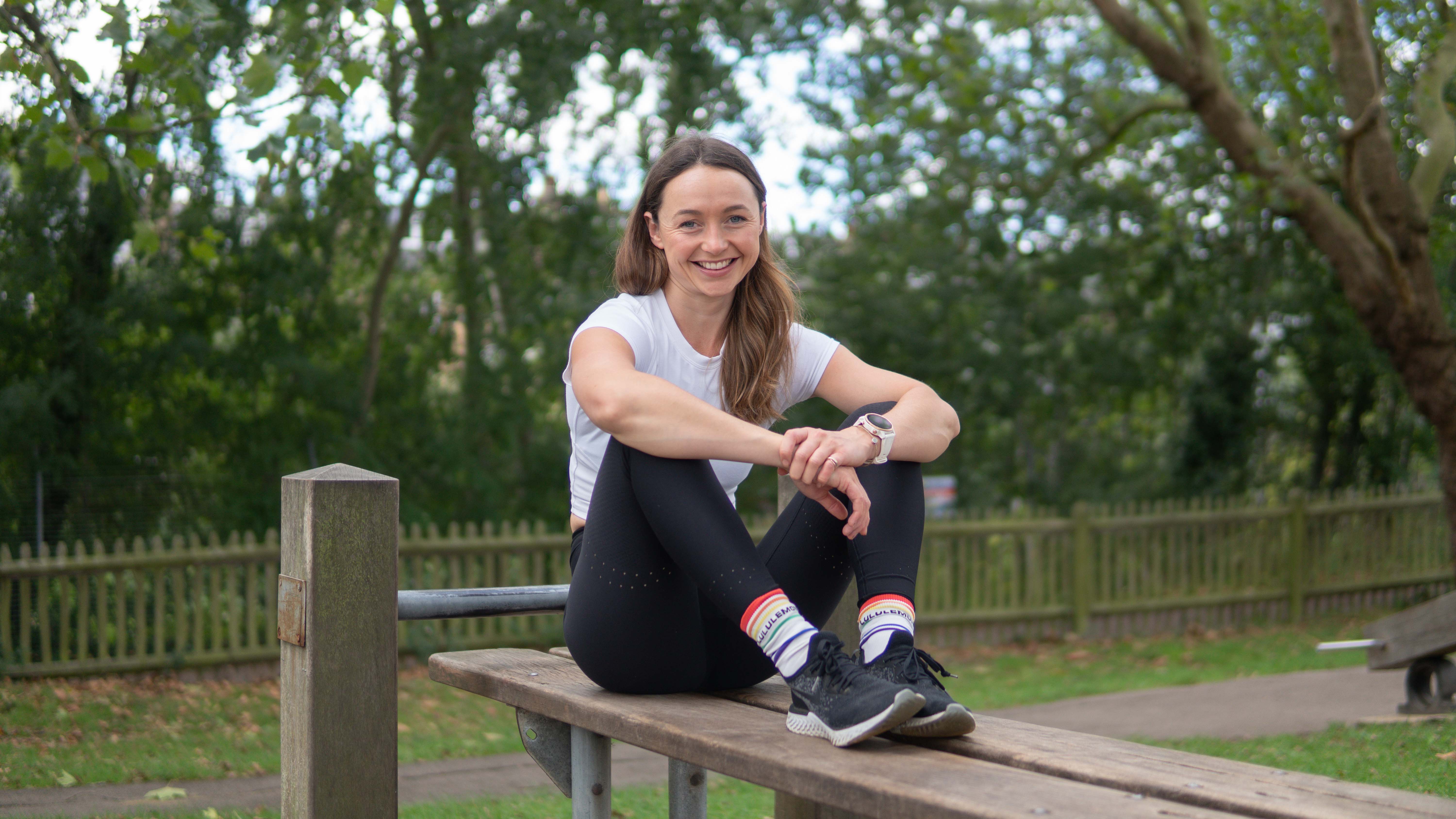
TRX suspension trainers are one of the best home gym equipment you can have and they are especially good for strengthening the glutes, quads and core. And not surprisingly, this TRX glute home workout by lululemon ambassador Daisy Hughes is perfect for runners, but even non-runners can benefit by following along with this workout.
As Daisy puts it, "the glutes are responsible for hip extension which powers your stride thus stronger glutes equates to faster running!" Wearing the best running shoes can also make you run faster, especially if you do this 5-move TRX workout for legs often.
But why would you stop there? Have a look at the best core exercises as well as the best glute exercises and top tips on how to get a big butt (the right way).
How to perform this TRX home workout for legs
You will need only one piece of home gym equipment to be able to do his workout: a suspension trainer. TRX is one of the best suspension trainer manufacturer today so going for TRX trainer is a good idea but any suspension training set would work.
This 5-move TRX workout for legs focuses on the lower body and will strengthen the major muscles required for running: glutes, quads, hamstrings and hip flexors. Working on single leg stability (exercises three and four) will address balance and strengthen the smaller supporting muscles, ligaments and tendons around the knees and ankle joint (very important for knee health and to avoid a twisted ankle).
For maximum efficiency, do 8-12 reps of each exercise and repeat for three to five rounds.
- TRX HOME2 review: suspension trainer home workouts don't get much better than this
- 5 main benefits of using suspension trainers for both indoor and outdoor workouts
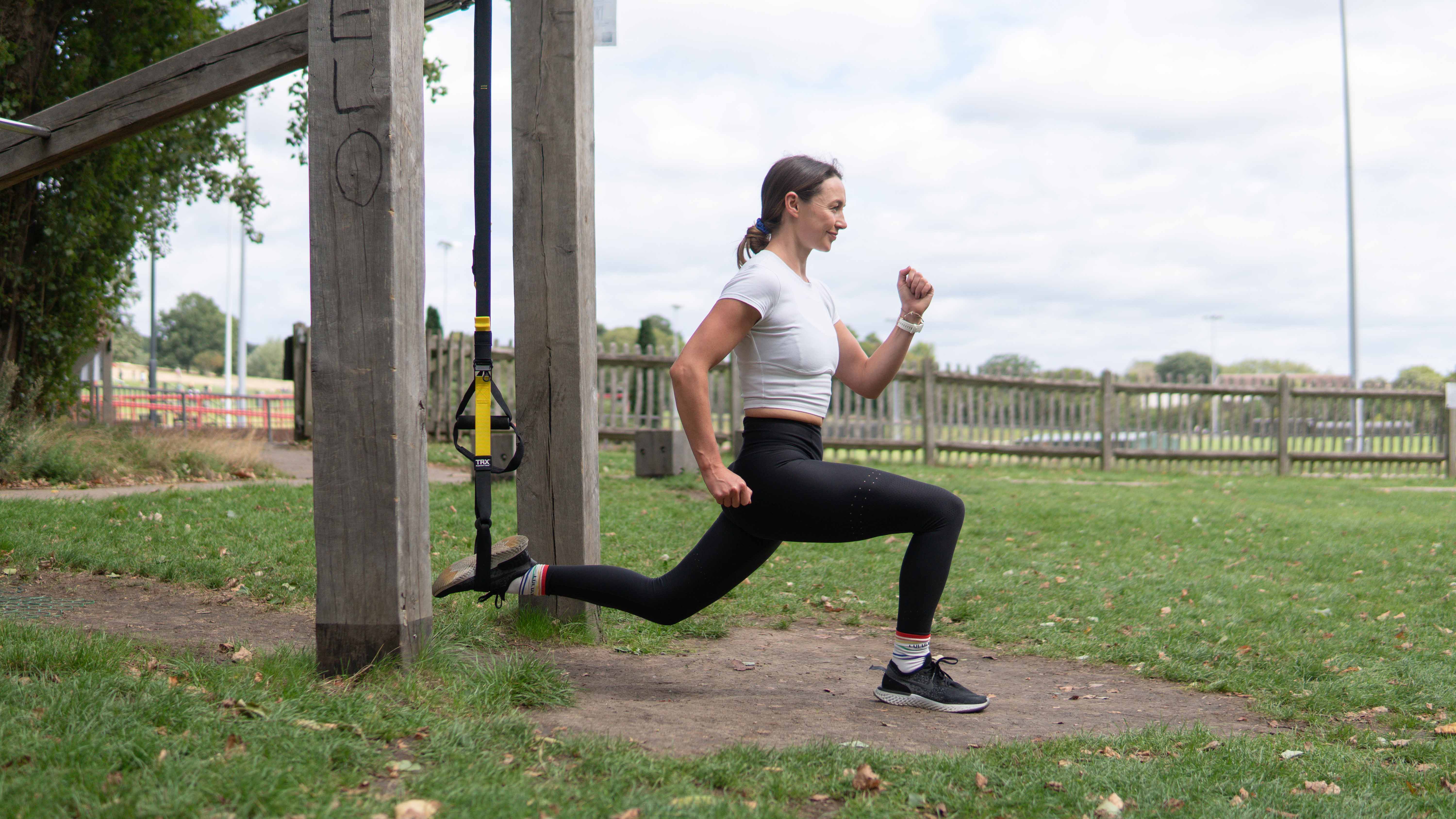
TRX Floating Lung
How to: Face away from the anchor with one foot in the cradle of the TRX, bend the knee of the standing leg and send the second leg into a reverse lunge. Ensure to keep the knee staked over the ankle and the torso upright. Power up to return to standing drawing the knee of the reverse leg to meet with the standing, repeat continuously on the same side.
Get all the latest news, reviews, deals and buying guides on gorgeous tech, home and active products from the T3 experts
Make it harder: Power back to standing with a jump/hop.
Benefits: Balance, single leg stability. Strengthens quads and glutes with the added bonus of plyo and cardio for power and cardio if you add the jump.
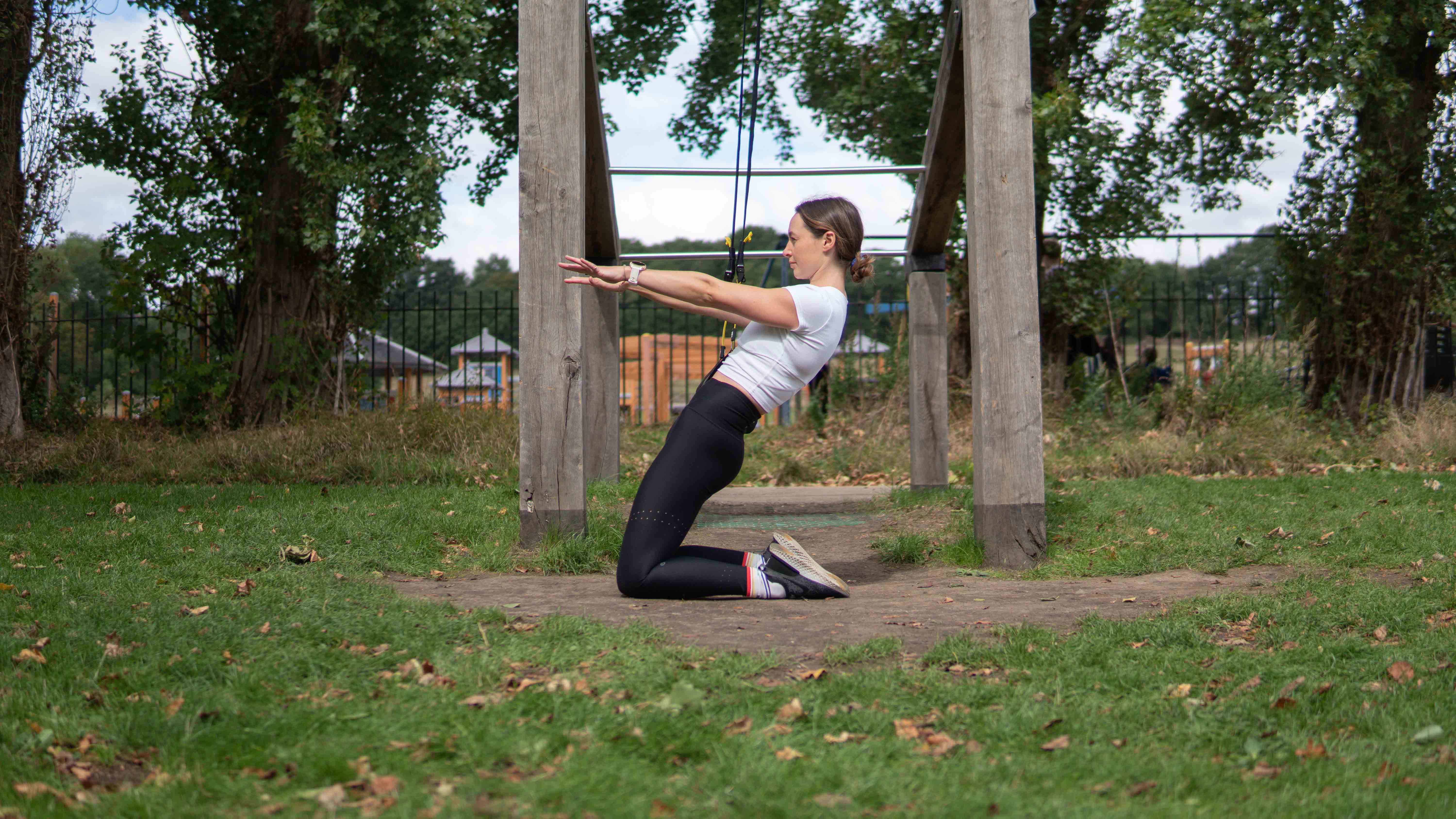
Natural Leg Extension
How to: Come into a tall kneeling position on a padded surface, squeeze the glutes, engage the core and keep a straight line from knees, hips and shoulders as you lower slowly backwards. The aim is to eventually get the hips to heal. Return to a high kneel by powering through the quads. Make sure to control the eccentric part of the move by taking at least five seconds to lower.
Make it harder: Hold for five to ten seconds at the bottom of each rep (bum to heels).
Works: The natural leg extension is a brilliant strength building exercise for the quads and core and doesn’t require the leg extension machine at the gym. It also works to lengthen or relieve tight hip flexors.
(If you find this difficult, either because you have very tight quads and/or experience any knee pain, try the Sissi squat instead.)
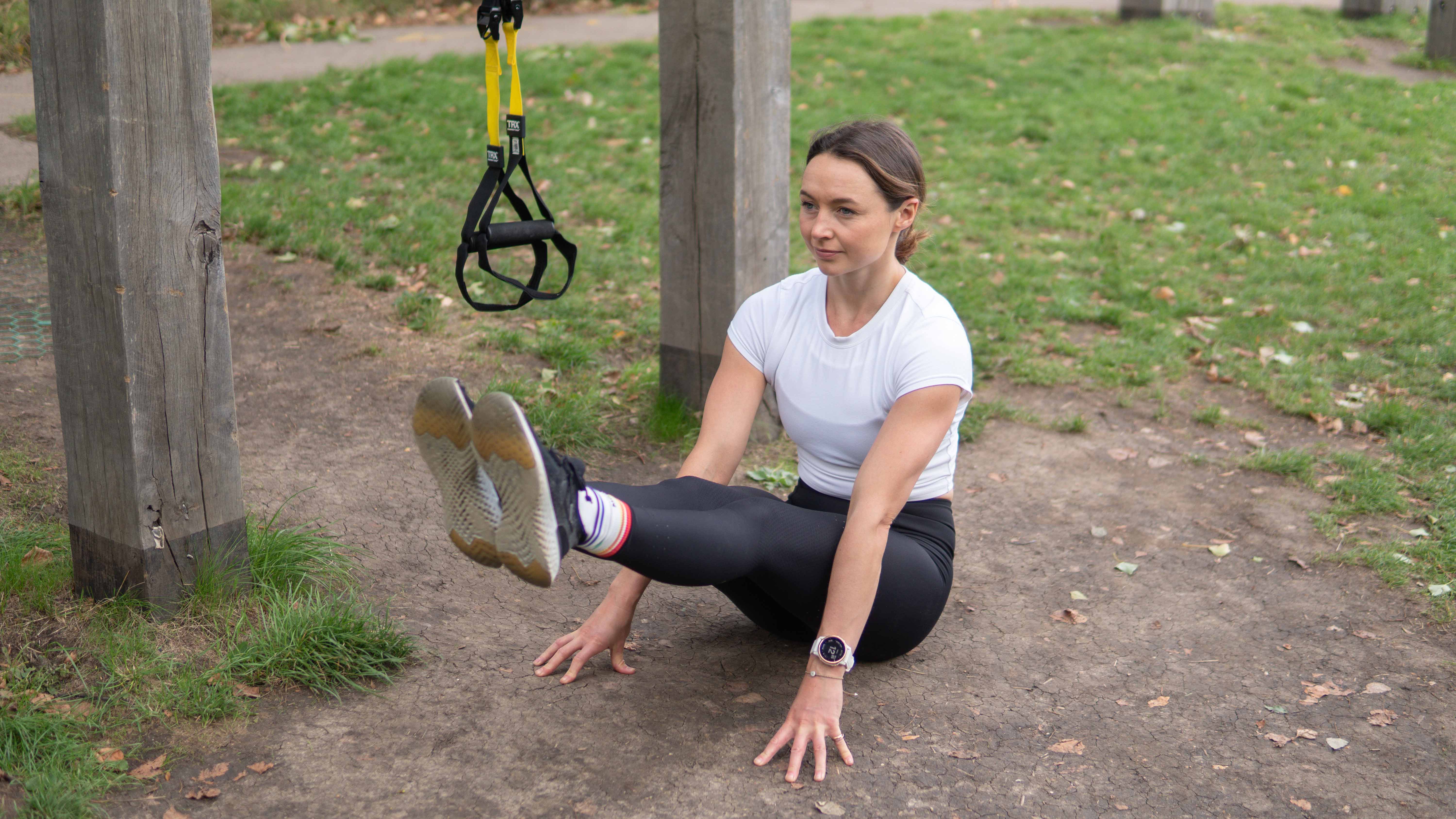
Pike Compression Lifts
How to: Sit on the floor with the legs extended in front of the body. Bring the fingertips either side of the upper thighs, engage the legs entirely from the quads right the way to the pointed toes and whilst maintaining locked straight legs, try and lift the knees to the eyes - it is a really hard exercise so don’t worry if they won’t go that far!
Make it harder: Work the hands closer towards the knees and lean forward to keep an acute angle between the legs and chest.
Benefits: Strengthens hip flexors, improving lower abdominal and hip strength. Increase hamstring flexibility and improve knee stability for injury prevention.
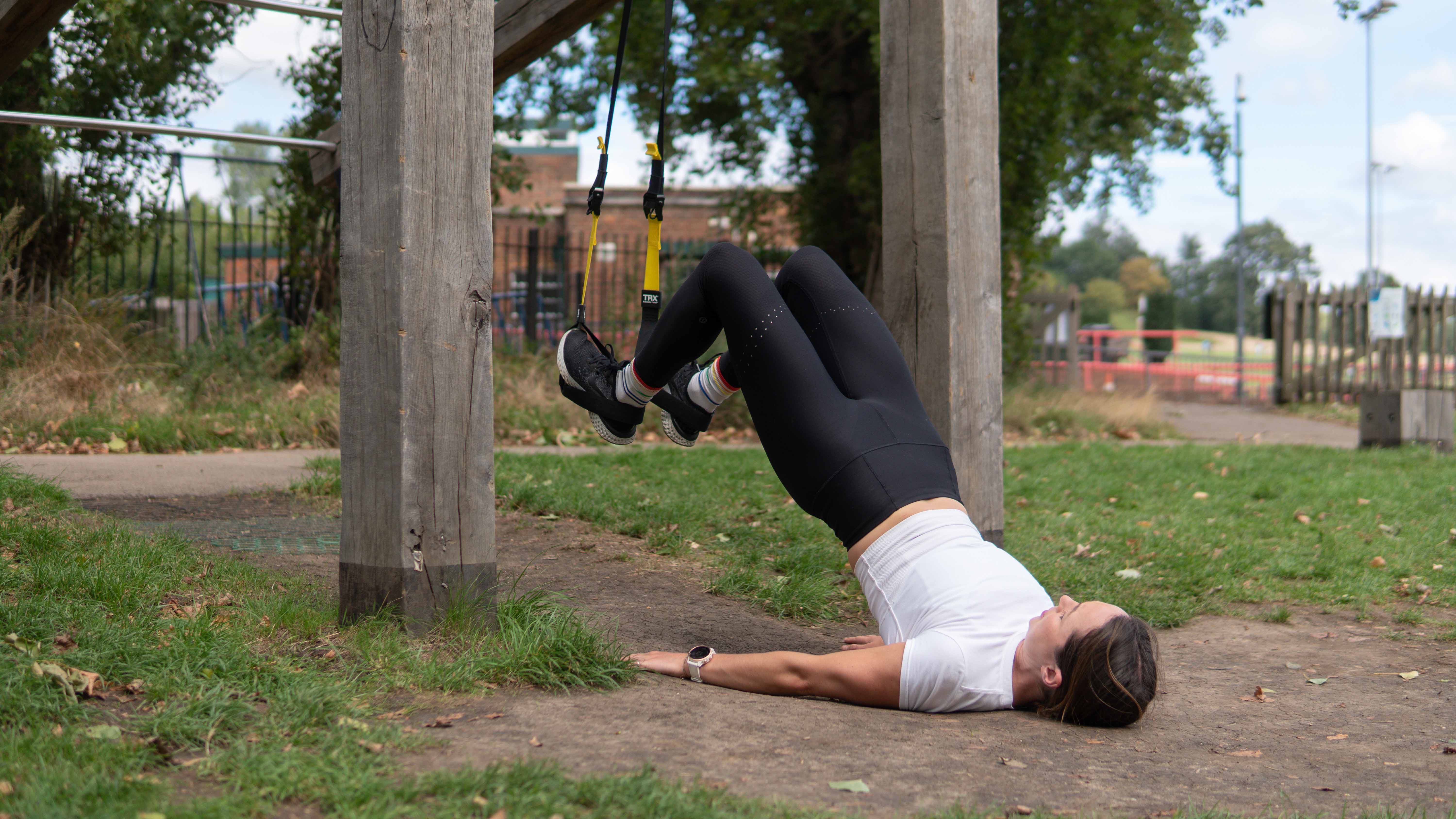
TRX Hamstring Curl with Glute Bridge
How to: Lie on the floor and place the heels in the cradles of the TRX. Lift the hips up into a glute bridge maintaining a posterior pelvic tilt. Once lifted extend legs out for the hamstring curl. Reverse the steps to return to the floor and repeat.
Make it harder: For more time under tension and to work the hamstrings and stability more, keep the hips up in the glute bridge rather than lowering the back to the floor between reps.
Benefits: Brilliant hamstring and glute exercise to strengthen the posterior chain (back body). The front and back body must be balanced for optimal health of the spine and knees; however it is all too common for the quads and front body to be stronger, leading to imbalance and potentially injury.
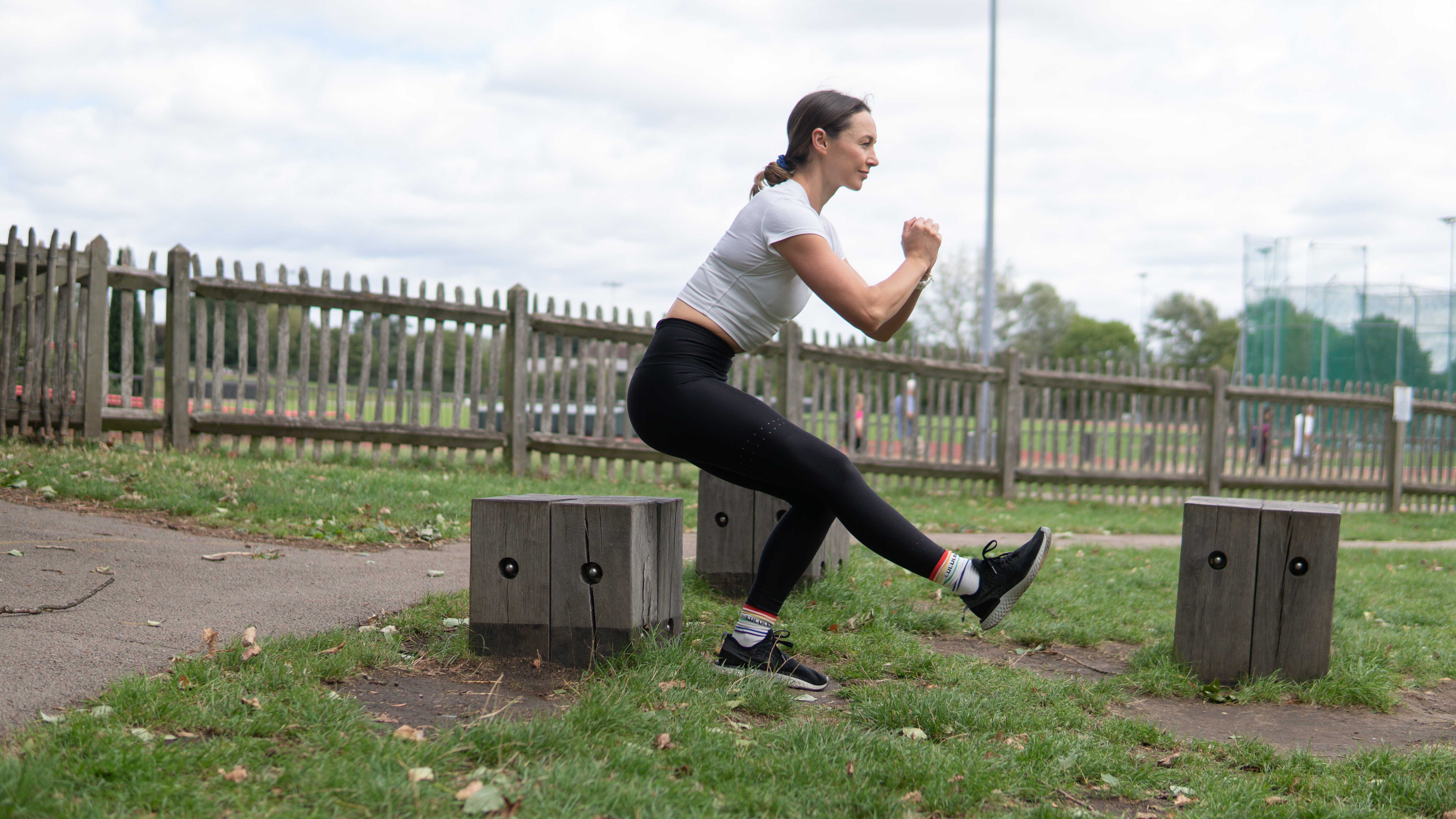
Single Leg Box Squat
How to: Stand on one leg with a chair or stool behind you. Slowly lower down to touch the glutes to the box before powering back up to standing. Complete all reps on one leg before switching. Keep the second leg off the floor for the duration of the exercise.
Make it harder: Lower the box to increase the difficulty of the exercise until you can do a full pistol squat with no box at all.
Benefits: This unilateral squatting enhances muscular activation and coordination whilst building on strength and stability of the quads, core, glutes, and ankle stabilisers.

Matt Kollat is a journalist and content creator for T3.com and T3 Magazine, where he works as Active Editor. His areas of expertise include wearables, drones, action cameras, fitness equipment, nutrition and outdoor gear. He joined T3 in 2019.
His work has also appeared on TechRadar and Fit&Well, and he has collaborated with creators such as Garage Gym Reviews. Matt has served as a judge for multiple industry awards, including the ESSNAwards. When he isn’t running, cycling or testing new kit, he’s usually roaming the countryside with a camera or experimenting with new audio and video gear.